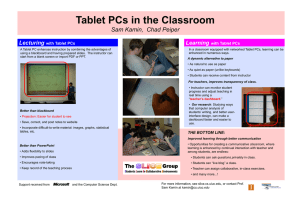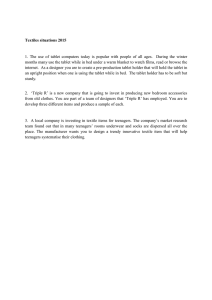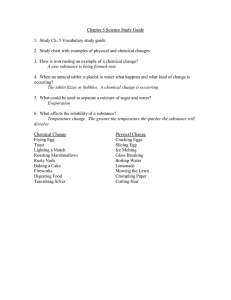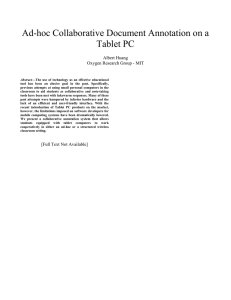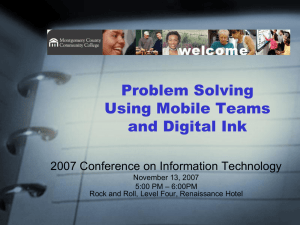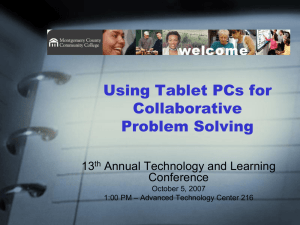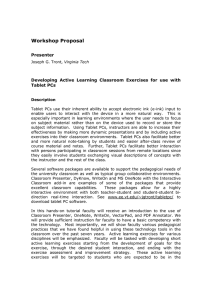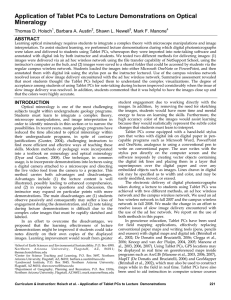Date: Sat, 28 Jun 2008
advertisement
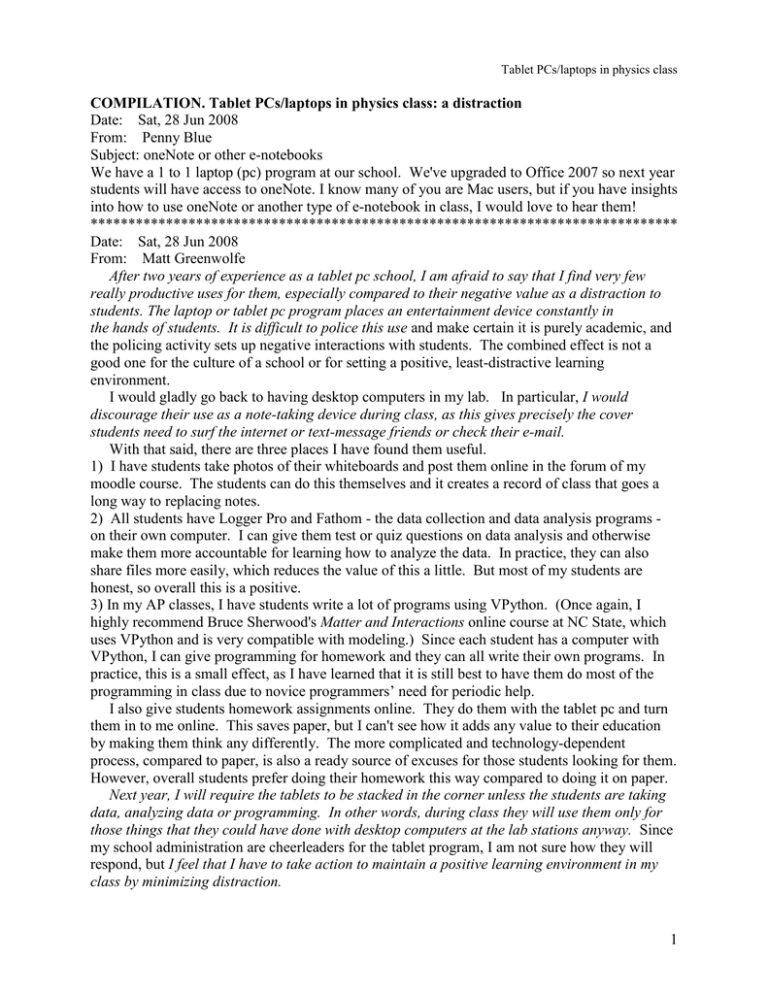
Tablet PCs/laptops in physics class COMPILATION. Tablet PCs/laptops in physics class: a distraction Date: Sat, 28 Jun 2008 From: Penny Blue Subject: oneNote or other e-notebooks We have a 1 to 1 laptop (pc) program at our school. We've upgraded to Office 2007 so next year students will have access to oneNote. I know many of you are Mac users, but if you have insights into how to use oneNote or another type of e-notebook in class, I would love to hear them! ****************************************************************************** Date: Sat, 28 Jun 2008 From: Matt Greenwolfe After two years of experience as a tablet pc school, I am afraid to say that I find very few really productive uses for them, especially compared to their negative value as a distraction to students. The laptop or tablet pc program places an entertainment device constantly in the hands of students. It is difficult to police this use and make certain it is purely academic, and the policing activity sets up negative interactions with students. The combined effect is not a good one for the culture of a school or for setting a positive, least-distractive learning environment. I would gladly go back to having desktop computers in my lab. In particular, I would discourage their use as a note-taking device during class, as this gives precisely the cover students need to surf the internet or text-message friends or check their e-mail. With that said, there are three places I have found them useful. 1) I have students take photos of their whiteboards and post them online in the forum of my moodle course. The students can do this themselves and it creates a record of class that goes a long way to replacing notes. 2) All students have Logger Pro and Fathom - the data collection and data analysis programs on their own computer. I can give them test or quiz questions on data analysis and otherwise make them more accountable for learning how to analyze the data. In practice, they can also share files more easily, which reduces the value of this a little. But most of my students are honest, so overall this is a positive. 3) In my AP classes, I have students write a lot of programs using VPython. (Once again, I highly recommend Bruce Sherwood's Matter and Interactions online course at NC State, which uses VPython and is very compatible with modeling.) Since each student has a computer with VPython, I can give programming for homework and they can all write their own programs. In practice, this is a small effect, as I have learned that it is still best to have them do most of the programming in class due to novice programmers’ need for periodic help. I also give students homework assignments online. They do them with the tablet pc and turn them in to me online. This saves paper, but I can't see how it adds any value to their education by making them think any differently. The more complicated and technology-dependent process, compared to paper, is also a ready source of excuses for those students looking for them. However, overall students prefer doing their homework this way compared to doing it on paper. Next year, I will require the tablets to be stacked in the corner unless the students are taking data, analyzing data or programming. In other words, during class they will use them only for those things that they could have done with desktop computers at the lab stations anyway. Since my school administration are cheerleaders for the tablet program, I am not sure how they will respond, but I feel that I have to take action to maintain a positive learning environment in my class by minimizing distraction. 1
